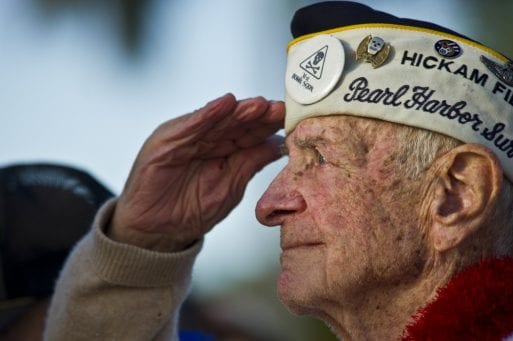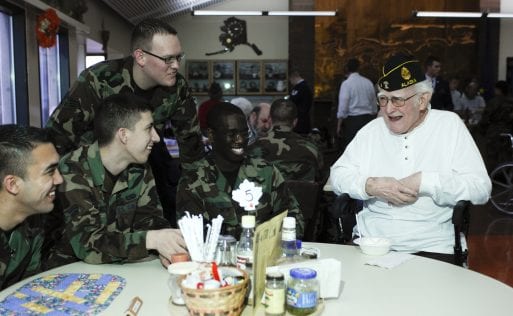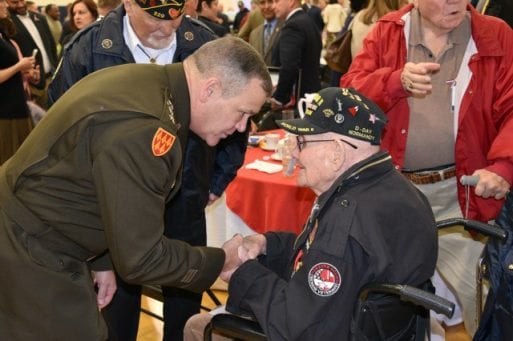
Photo credit: Michael Holzworth
Even with excellent care, hospice patients often struggle with fear and uncertainty when approaching the end of life. For veteran hospice patients, this fear can be exacerbated by the trauma of war. It can be difficult to envision a peaceful and natural death while carrying memories of violence.
For this reason, volunteers with military backgrounds are an invaluable resource for hospices catering to veterans. With the help of organizations like We Honor Veterans, many hospices have created veteran-to-veteran volunteer programs to provide patients with companions who understand and relate to their military experience.
Through these programs, veteran patients are paired with volunteers who share similar military history. Volunteers typically go through an orientation process, which helps them become familiar with palliative care and grieving processes. Volunteers are also briefed on more formal duties, such as confidentiality and mandatory reporting. We Honor Veterans provides free training materials for these orientations on their website.

Photo credit: Tinese Treadwell
Compassion and Comradery
Many veteran hospice patients grapple with loneliness and isolation. Volunteers offer companionship through games, activities, and conversation, and can provide much-needed relief for caregivers. Family and friends often experience burnout when caring for loved ones in hospice, and it can be helpful to have the support of a trusted volunteer to ease this burden.
Volunteers can also support communication between the veteran and his or her family. Military training encourages stoicism, and some veterans struggle to convey important feelings to their loved ones at the end of life. A veteran volunteer can empathize with this struggle while encouraging efforts to communicate.

Photo credit: Jason Cutshaw
Shared Memories
Having a fellow veteran to converse with also encourages hospice patients to share memories and tell stories from the past, which has been shown to have a positive effect on mental health. Because volunteers are matched with patients who share similar military history, they may be able to compare experiences of the same war, station or region.
Reflecting on the past can be nostalgic and uplifting, but it can also lead to intense emotions, particularly for those who have experienced extreme violence or trauma. Veteran hospice patients may feel relief exploring these negative memories with someone who can understand their experience, but it is important that the volunteer be sensitive to the patient’s comfort level.
While this companionship can make a monumental difference in a patient’s end of life experience, it can be deeply fulfilling for the volunteer as well. Don Griffith, a volunteer at a veteran-to-veteran volunteer program at the Veteran Affairs Center in Lebanon, Pennsylvania, says the experience has been “an honor,” and that “I get out of it more than I give.”

 Veteran-to-Veteran Volunteer Programs Provide Companionship to Hospice Patients
Veteran-to-Veteran Volunteer Programs Provide Companionship to Hospice Patients


 Our Annual Seven Holiday Gifts for Someone Who Is Grieving, 2024 Edition
Our Annual Seven Holiday Gifts for Someone Who Is Grieving, 2024 Edition
 “Making Mobiles” by Karolina Merska
“Making Mobiles” by Karolina Merska
 “Hands Up to the Sky” by Michael Franti & Spearhead
“Hands Up to the Sky” by Michael Franti & Spearhead














